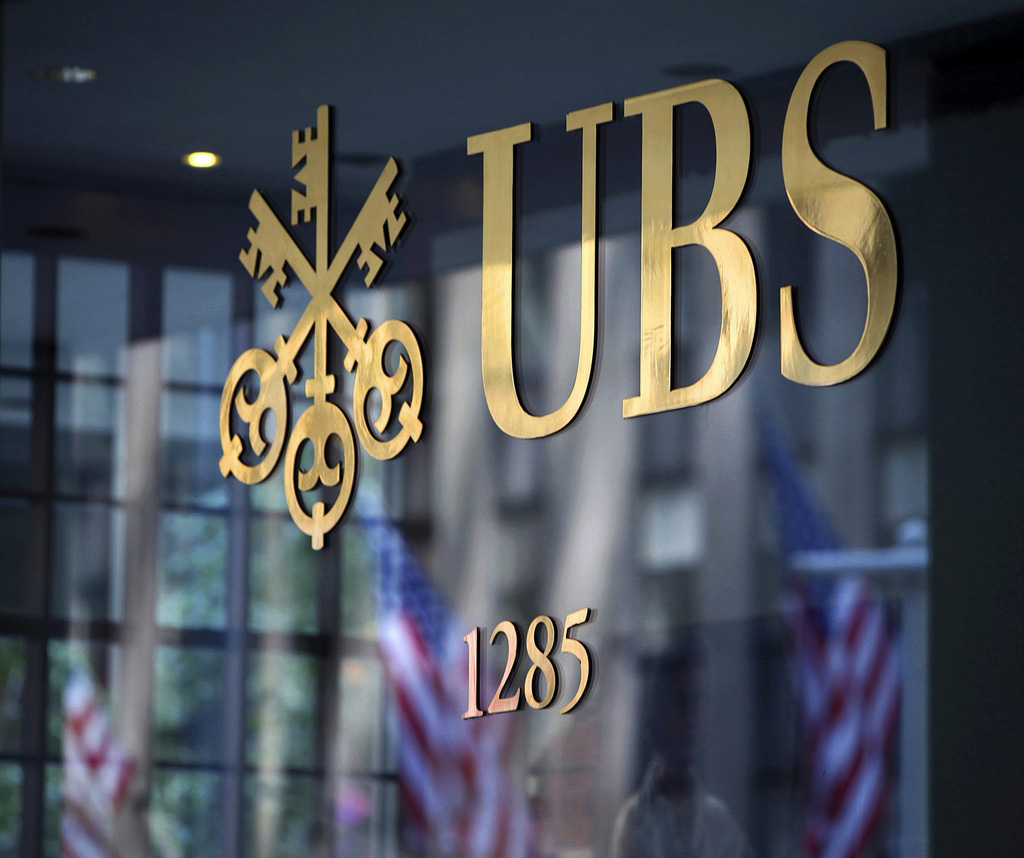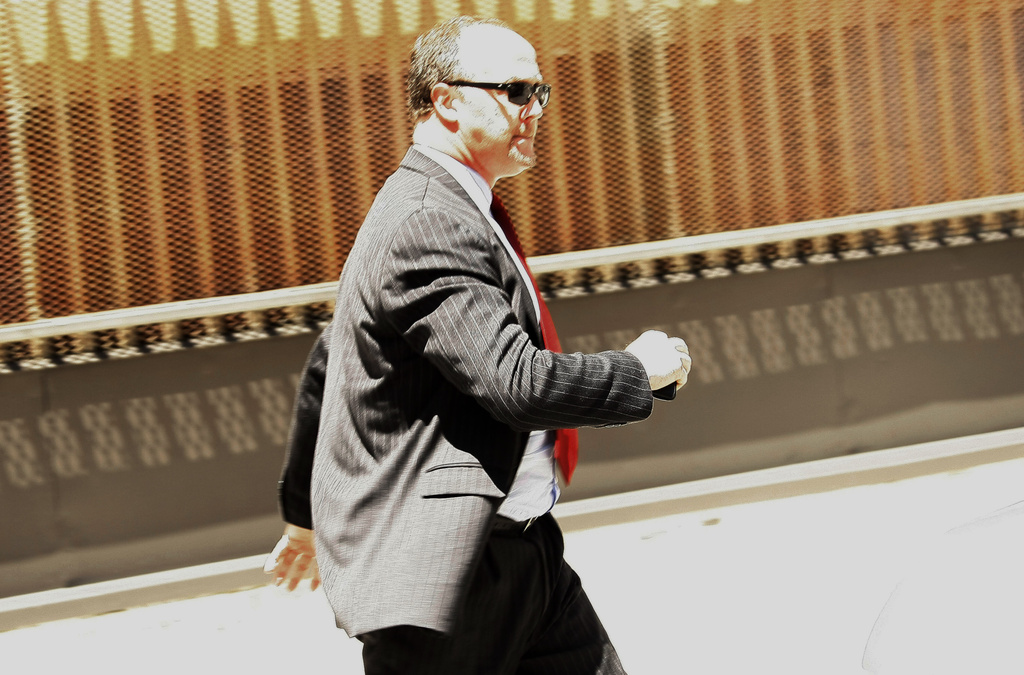Media cry foul over UBS vote

After concerns by economists, it was the turn of Swiss newspapers to chastise politicians over Tuesday’s no vote to a UBS settlement deal with the United States.
The deal was blocked in parliament after wrangling by two parties over banking regulation and capping managers’ bonuses. Economists immediately implored politicians to accept the deal for the good of the country. It was a theme picked up by the Tribune de Genève.
“There is something pathetic about hearing economic circles begging the elected representatives to ‘use wisdom’ and heed ‘national interests’ rather than ‘personal interests’,” noted the paper’s Judith Mayencourt.
“The sensational rejection of the accord with the United States illustrates the scale of the political tensions arising from the UBS crisis. The wrong turns of government… now follow the wrong turns of a parliament on the brink, unable to sign an agreement that – in effect – everyone believes is questionable but necessary.”
The accord is a settlement reached between the US and Switzerland last year requiring the handover of confidential client data to save the Swiss bank UBS from legal action. The US had sued the bank after allegations it helped rich Americans stash portions of their wealth away from US tax collectors.
After being rejected by the House of Representatives, the deal was approved for the second time by the Senate on Wednesday. It will now return to the House of Representatives, where a final no vote would effectively bury it for good.
“The UBS deal is inevitably a bad deal, a bad deal to a bad situation. But it is too late to go back. And it is illusory to believe that it will be possible for the Swiss negotiators to go back to their American negotiating partners in the hope of finding a better solution,” wrote Le Temps’s Bernard Wuthrich.
“The spectacle provided by the House of Representatives is disconcerting. It feels like a schoolyard, despite the political and economic stakes being considerable.”
He notes that there is still time to find a way out of the impasse, but the centre-right parties need to play a part. “Perhaps it is not too late to negotiate one last time and, through unpleasant bartering, convince 20 to 30 parliamentarians to change their position.”
“Chaotic party landscape”
For the Neue Zürcher Zeitung, “Swiss politics has reached a low point”.
“On Tuesday the ‘no-voters” both on the left and on the right swept the country’s interests back into the broom closet,” wrote René Zeller.
“The pirouettes, intrigue, blackmail, U-turns and other follies of the past few weeks go far beyond standard party wrangling. The UBS deal embodies a chaotic party landscape, whose exponents act uncompromisingly on the margins and always have one eye on the voters.”
Like other media observers, the NZZ urged politicians to set aside their differences and back the deal. “From an economic perspective the UBS deal is too important. And whoever plays with fire is foolhardy and certainly not doing so in the nation’s interest.”
“It is clear that there is an incalculable risk to the country and the economy,” noted the tabloid Blick newspaper. “The Social Democrats and People’s Party will decide next week whether to take that risk.”
Blick’s Henry Habegger said it was “potentially fatal for a so-called business party” like the People’s Party not to back it.
High stakes
“The stakes are high,” wrote the Tages-Anzeiger. “First, the relationship to the US superpower. Secondly, the question of how much a state of law can buckle under pressure…”
“Perhaps the people’s representatives should take a quiet moment to think about what their job is, namely to solve the problems of the country to the best of their ability and in accordance with their conscience.”
But after the “undignified bustle” by the Social Democrats and the Swiss People’s Party to turn the vote to their advantage, both were making sounds that they were having second thoughts, it said.
“It can’t be excluded that the Social Democrats and the People’s Party will give in after all, to avert a greater harm. For the good of the country.”
Cliffhanger
Abroad, the Financial Times reported that “Switzerland and the US were on a collision course over tax evasion” after the vote.
“The issue has turned into a cliffhanger, with a final vote only likely on June 18, the last day of the current session of parliament,” it said.
“If the agreement was killed in parliament, Washington would almost certainly restart the civil case against UBS that was frozen when last year’s deal was struck. Analysts warned this would leave the bank open to uncertainty at a time when it needs stability and possibly cause further disquiet in jittery world financial markets.”
The New York Times noted: “Without the approval of parliament, the government cannot implement the agreement, and the data cannot be handed over – a possibility some say could be disastrous for UBS in the United States.”
Ashby Jones, a law blogger for the Wall Street Journal, summed up the general astonishment over the outcome: “Huh? What? Where’d this come from?”
“It’s been a while since we’ve written about the situation between UBS and the IRS. But given Tuesday’s news, it could be that we start writing about it a bit more all over again. It appears the vote was largely the result of, well, politics,” Jones added.
Jessica Dacey, swissinfo.ch (with input from Simon Bradley)
Ten per cent of all Swiss exports go to the US, the second-largest single export market after Germany.
US companies in Switzerland make up 5% of Swiss GDP, the same as Switzerland’s wealth management sector.
The agreement in dispute is legal and binding under international law.
A new double-taxation agreement could be killed if the current deal does not go through.
Foreign companies, particularly US companies, operating in Switzerland would have difficulties staying in Switzerland if tax treaties are torpedoed or the country is placed on a black list.
Total companies potentially affected represent 35% of Swiss economy and roughly 1 million jobs.
Source: Swiss-American Chamber of Commerce
UBS is the world’s number two wealth manager by managed assets and Switzerland’s second-largest bank.
It has a workforce of more than 76,000 worldwide, including nearly 30,000 in the US.
In February 2009 UBS paid a $780 million fine and gave information on 285 clients after admitting that some of its bank employees had helped US citizens evade taxes.
UBS, which benefited from a multi-billion bailout package by the government, posted a record loss of SFr9.58 billion in 2008 and finished 2009 with a net loss of SFr2.74 billion.
A parliamentary report in May said the Swiss government failed in its treatment of UBS and in its leadership during the global financial crisis.
In the report, the parliamentary control committees said the government seemed to have lacked the “most elementary methods of working as a team” during the crisis.
The parliamentary committees called for action to prevent such crises. This includes written statements on consultations within the government and decisions taken.
In its call for a parliamentary investigation, the Swiss People’s Party said the committees’ report did not adequately explain why the names of 285 US customers of UBS had already been handed over to Washington. Nor was there enough information about the August 2009 UBS deal between Switzerland and the US.
The House of Representatives supported such an investigation in March and again on June 8 by 123 to 57 votes. However backing from the Senate, needed to create a parliamentary investigative commission, looks unlikely.

In compliance with the JTI standards
More: SWI swissinfo.ch certified by the Journalism Trust Initiative














You can find an overview of ongoing debates with our journalists here . Please join us!
If you want to start a conversation about a topic raised in this article or want to report factual errors, email us at english@swissinfo.ch.